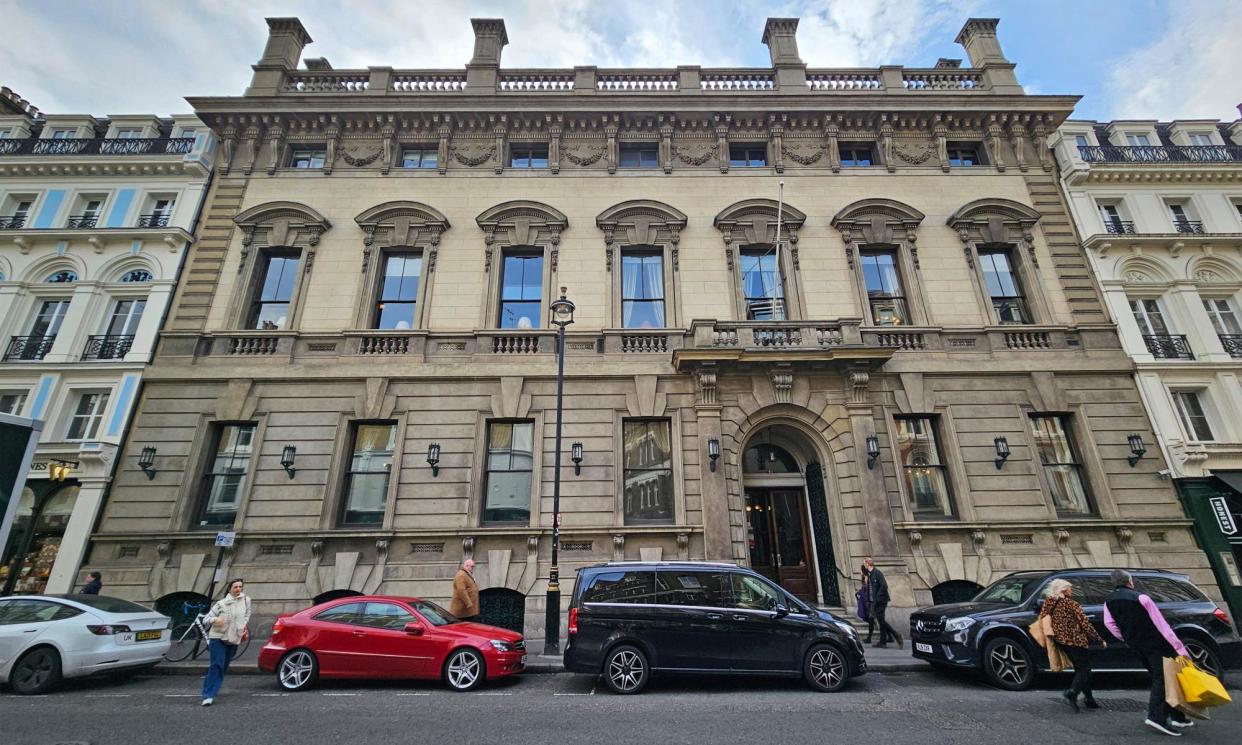Garrick edges closer to admitting female members after 193 years of exclusion

The men-only Garrick Club has edged closer to admitting female members, after an emergency committee meeting acknowledged that there was nothing in the club rules to prevent them from joining.
The late-night vote on Thursday means that women could finally become members of the club within months, 193 years after the Garrick was founded and following decades of controversy over its discriminatory rules, sources said.
The club’s committee passed a motion to accept new legal advice clarifying that the pronoun “he” should be seen as interchangeable with “she” in law, so the club’s rules already permit women to join.
The committee indicated that an extraordinary general meeting would now be called, requiring the club’s 1,500 members to vote to approve the decision.
The emergency meeting was called two weeks after the Guardian published a list of more than 60 Garrick members with powerful positions in the British establishment, giving an insight into the club’s closely guarded membership list.
Among the club’s 1,500 members are King Charles; Oliver Dowden, the deputy prime minister; Michael Gove, the communities secretary; and leading figures within the arts, including the head of the Royal Opera House and prominent actors such as Brian Cox and his Succession co-star Matthew Macfadyen, Hugh Bonneville, Hugh Laurie, Stephen Fry and Benedict Cumberbatch.
The head of the civil service, Simon Case, the head of MI6, Richard Moore, and at least four senior judges resigned their membership of the club after the Guardian’s reporting and following widespread criticism of their decision to join an organisation that has repeatedly blocked motions proposing that women should be allowed to join.
Women are only allowed in the club if they are invited in by a member, and accompanied by a man throughout their visit.
Internal wrangling has gone on for years over whether the club’s rules actually prohibit women from becoming members. Two senior barristers have argued there is nothing in the rules specifying the club should be restricted to men.
David Pannick KC, who led the successful Brexit article 50 case against the government, was recently commissioned to analyse the 193-year-old rulebook by Garrick members who are in favour of women being allowed membership.
A team led by Pannick concluded: “In our view, the language of the rules is clear. There is no prohibition on the admission of female members … although the language … is phrased by reference to the masculine (‘No candidate shall be eligible unless he be proposed’), it is entirely within the ordinary use of English language that a reference to the masculine denotes the feminine unless the context otherwise requires.”
This legal advice was accepted by the club’s committee on Thursday evening, sources close to committee members said.
Seven women with leading positions in the British establishment have already been nominated as prospective members of the Garrick in the event that the club agrees to change its rules.
The classicist Mary Beard, the former home secretary Amber Rudd, the Channel 4 News presenter Cathy Newman and the Labour peer Ayesha Hazarika were among the first names to be put forward to the club as possible future members last week.
Also on the list of proposed new members are the actor Juliet Stevenson, the chair of the trustees of Shakespeare’s Globe, the chancellor of Coventry University, Margaret Casely-Hayford, and Elizabeth Gloster, formerly an appeal court judge.
Fry, the broadcaster Matt Frei and the opera singer Ian Bostridge were among the signatories who, it is understood, have not received any response from the club to their letters proposing the women as members.
A change in the interpretation of the club’s rules may not make any immediate difference to the club.
One member said it had taken three years between his name being proposed and receiving confirmation that he had been accepted.
“I was told that was relatively swift,” he said, explaining that the nomination process requires two pages of supporting signatures to be filled up in a red leather-bound book, before the proposed member has to eat a number of dinners at the club as the guest of the members who proposed and seconded his nomination.
Membership numbers are restricted. “It’s like dead man’s shoes. You have to wait for a hard winter for some of the older members to die,” the member said, asking not to be named because club protocol dictates that club matters should not be spoken of outside the building.
Another member said he welcomed the vote, but warned that there was a four-year waiting list for new members.
“It is good that people have finally realised that the world will not break up into tiny pieces if women join the Garrick, but we will need to work out how to expedite new members,” he said.
“The diehard anti-women members seem resigned to the news. They have accepted that this must happen now.”


